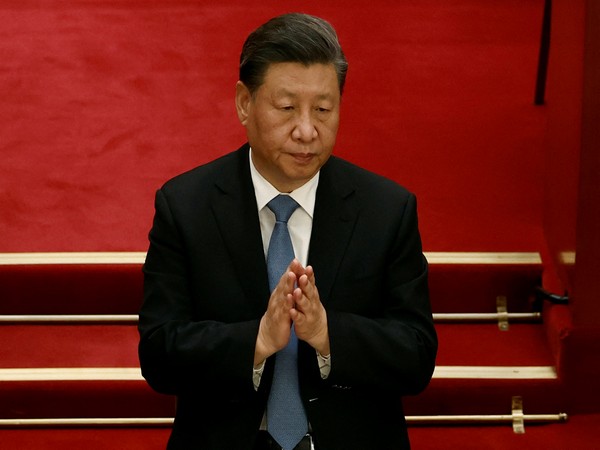Xi Jinping calls on top national security officials to brace for "worst case" scenarios
Chinese President Xi Jinping has urged his top national security officials to consider "worst-case" scenarios and prepare for "stormy seas," as the governing Communist Party intensifies efforts to tackle perceived internal and external threats, CNN reported.

- Country:
- China
Chinese President Xi Jinping has urged his top national security officials to consider "worst-case" scenarios and prepare for "stormy seas," as the governing Communist Party intensifies efforts to tackle perceived internal and external threats, CNN reported. At a meeting of the party's National Security Commission, Xi said, "The complexity and difficulty of the national security issues we now face have increased significantly," as per the state news agency Xinhua.
He added, "We must adhere to bottom-line thinking and worst-case-scenario thinking, and get ready to undergo the major tests of high winds and rough waves, and even perilous, stormy seas." The new stern instructions from Xi come as the country faces a slew of challenges, ranging from a faltering economy to an increasingly hostile foreign environment.
Faced with a "complex and grave" scenario, Xi stated that China must accelerate the upgrading of its national security system and capabilities, with an emphasis on making them more effective in "actual combat and practical use". He also urged China to accelerate the development of a national security risk monitoring and early warning system, increase national security education, and strengthen data and artificial intelligence security management.
Ever since Xi came to power a decade ago, he made national security a key paradigm that permeates all aspects of China's governance, CNN reported quoting experts. He has expanded the definition of national security to cover everything from politics to economics, defence, culture, and ecology, as well as cyberspace. It includes everything from the deep sea and the polar regions to big data and artificial intelligence.
China has implemented a raft of legislation to safeguard itself against perceived dangers under Xi's concept of "comprehensive national security," including laws on counter-terrorism, counter-espionage, cybersecurity, foreign non-governmental organisations, national intelligence, and data security. It recently broadened the ambit of its already extensive counter-espionage legislation from state secrets and intelligence to any "documents, data, materials, or items related to national security and interests."
"Everything in Xi's PRC is national security and there is an intensifying focus on better coordinating security and development, with the security side winning out over the economics side it appears," Bill Bishop, a long-time China observer, wrote in the Sinocism newsletter, referring to China with its official name, the People's Republic of China, reported CNN. Beijing implemented a broad national security measure in Hong Kong to quell dissent after massive democracy rallies roiled the city.
The idea that security has surpassed economic growth as Beijing's main priority has been exacerbated by a series of recent raids on foreign firms, including American consulting company Bain & Company and due diligence firm Mintz Group. The raids have alarmed overseas corporations at a time when China is attempting to entice foreign investment to help resuscitate a sluggish economy crippled by three years of zero-Covid restrictions.
In March, Chinese officials arrested a Japanese Astellas Pharma employee in Beijing on suspicion of espionage, making him the 17th Japanese national jailed in China since the counter-espionage law was enacted in 2014. At Tuesday's meeting, Xi also said that China must proactively shape a "secured external environment" to better maintain the security of the country's "opening up" and "promote the deep integration of development and security," CNN reported. (ANI)
(This story has not been edited by Devdiscourse staff and is auto-generated from a syndicated feed.)
ALSO READ
Global Investors Flock to Japanese Stocks Amid Yen Weakness
Japanese Firms Lead Global Climate Leadership: The Rise of Sustainable Corporate Giants
Yen's Decline Amid Japanese Electoral Tensions and Federal Reserve Speculations
Japanese Prime Minister Eyes Snap Election
Asian Market Surge Amid Japanese Election Speculations and Global Tensions










